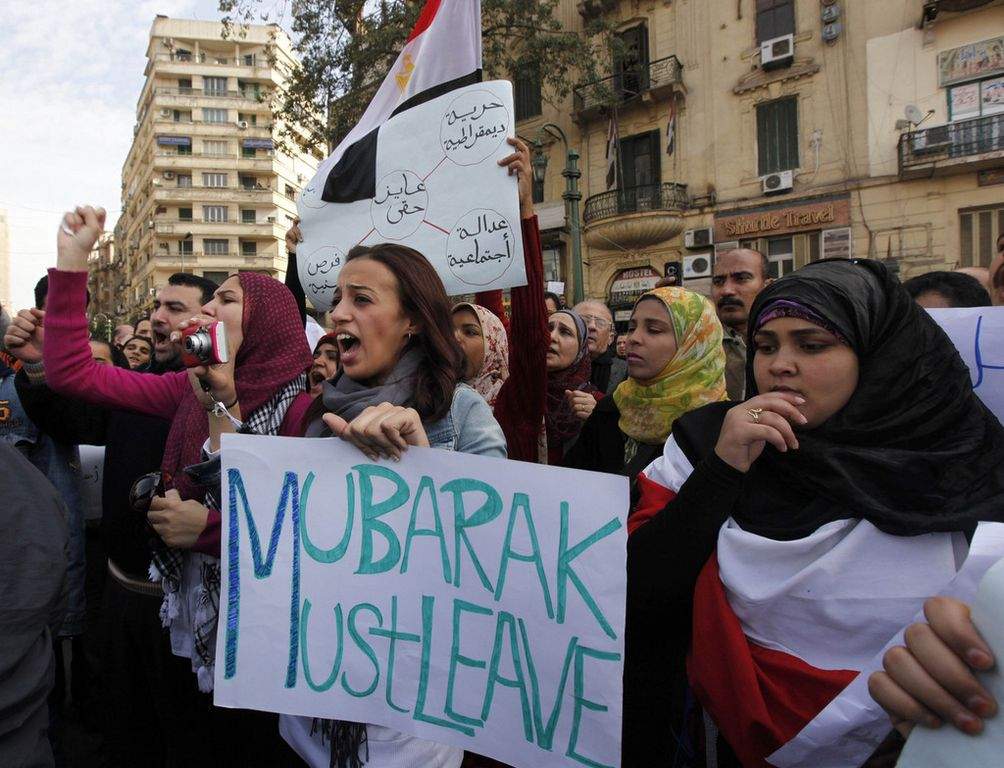
Mona Seif
February 11, 2011. The news media say that Hosni Mubarak stepped down today. They say he has resigned.
Hosni Mubarak did not step down today, and he did not resign. He was pushed. He was pushed by a mass of people, he was pushed by a convergence of sectors and forces, from students to workers to the unemployed to the working poor to the middle class to doctors to truck drivers to everyone. Hosni Mubarak did not step down. He was pushed … by women the women of Egypt.
Mubarak was pushed by women writers, novelists, poets, bloggers, such as Shahira Amin, Nawal El Saadawi, Yasmine El Rashidi, Mona Helmy, Ahdaf Soueif, Zeinobia, and Dalia Ziada.
Mubarak was pushed by women filmmakers and video makers, such as Asmaa Mahfouz, Jehane Noujaim, and Tahani Rached.
Mubarak was pushed by women doctors, such as Aida Seif El Dawla and Sally Moore.
Mubarak was pushed by women performance artists, such as Karima Mansour.
Mubarak was pushed by women who came as partners, wives, mothers, daughters, such as the mother of Khaled Said, her son beaten to death last year by police in Alexandria; Doaa Abdulla, who awakened her husband and said we must go to the protests; and Elham Eidarous, who alternated nights in Tahrir Square with her husband.
Mubarak was pushed by women human rights activists, women’s rights activists, and pro-democracy activists, such as Mona El Seif, Mozn Hassan, Nehad Abul Komsan, Selma al-Tarzi, Sonda Shabaik, and Ghada Shahbandar.
Mubarak was pushed by women whose names are only partly known, such as Asma, Ghada, Mona, Mariam, and Rania.
Mubarak was pushed. The categories don’t matter. The filmmakers are students, the writers are doctors, the activists are dancers. The elders are youthful, the youth are wise. The names are signatures of millions of women and girls, and men and boys, who have filled the streets and the skies, who have seized the day and the night. Liberation is possible, revolution is possible, hope is material, dreams are material.
Hosni Mubarak did not step down today. He did not resign. He was pushed … by the women of Egypt.
(Photo Credit: Al Jazeera)
